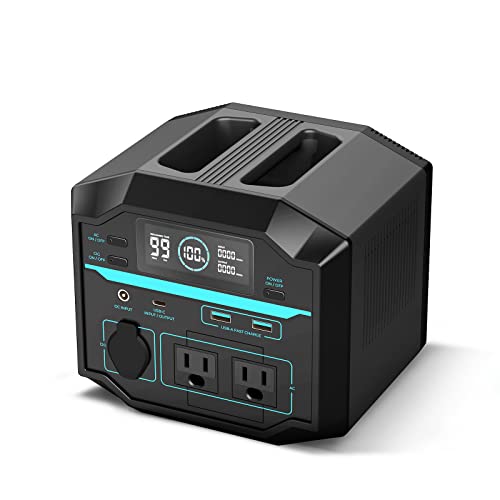As we inch closer to a more eco-conscious world, the demand for portable power solutions is on the rise. Tailored to meet the needs of both outdoor enthusiasts and emergency preparedness, products like the Renogy 200 and the Jackery 3000 Pro have surfaced as frontrunners in the market. In this technical comparison, we’ll delve into what sets these power stations apart, helping you decide which is the better investment for your specific needs.
Comparing the Giants: Capacity and Power Output
At the core of any portable power station is its capacity and power output capability. The Renogy 200 offers a modest 222Wh battery capacity with a 200W pure sine wave AC outlet, while the Jackery 3000 Pro boasts a massive 3024Wh with a continuous power output of 3000W. This stark difference shapes their use-cases substantially.
Portability and Physical Layout
Weighing a featherlight 5.3 pounds and adorned with a comfortable handle, the Renogy 200 is a maverick of mobility. On the contrary, the Jackery 3000 Pro, though it has a pull rod and wheels, is a heftier choice at nearly 64 pounds. The design elements of both cater to different types of travelers and situations.
Charging Capabilities and Recharging Speed
Time is of the essence in our fast-paced world. The Renogy 200 can recharge to 80% in just 1.5 hours, with multiple charging methods, including solar power compatibility. In the arena of charging speed, however, the Jackery 3000 Pro is a behemoth, fully charging in under 2.4 hours via wall outlet and boasting cutting-edge solar charging technology.
Additional Features and Fine Details
Both power stations sport a range of additional features from LCD displays to multi-protection systems. However, the Jackery 3000 Pro steps up with smart app control, superior cooling, and the ability to operate in colder temperatures, which could be decisive factors for tech-savvy users and extreme conditions.
| Feature | Renogy 200 | Jackery 3000 Pro |
|---|---|---|
| Battery Capacity | 222Wh | 3024Wh |
| Weight | 5.3 lbs | 63.93 lbs |
| Output | 200W continuous, 400W surge | 3000W continuous |
| Recharge Time | 80% in 1.5 hours | Full in 2.4 hours |
| Charging Methods | AC Adapter, USB-C, Car, Solar | Solar, Wall, Car |
| Portability | Compact & Lightweight | Built-in pull rod & wheels |
| Operating Temperature | Not specified | Functional up to -20°C / -4°F |
| Warranty | 1 year | 3 years (extendable) |


Final Remarks
Concluding this head-to-head comparison, the choice boils down to your specific needs. If you prize portability and swiftness, the Renogy 200 is tailored for you. For those needing robust power, extensive features, and cold weather functionality, the Jackery 3000 Pro is the way forward. Whatever your choice, both offer the ease of solar charging, a nod towards a greener future.


Leave a Reply